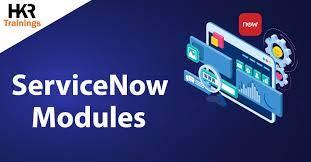ServiceNow is a cloud-based platform that offers a range of modules designed to automate and streamline business processes. These modules are used by organizations of all sizes to manage their operations more efficiently, reduce costs, and improve customer service. Some of the most commonly used ServiceNow modules include ITSM (IT Service Management), CSM (Customer Service Management), HRSD (Human Resources Service Delivery), and SecOps (Security Operations). Each module is designed to address specific business needs and can be customized to meet the unique requirements of individual organizations.
In this article, we will explore the different ServiceNow modules in detail, looking at their key features and benefits.
ServiceNow is a cloud-based platform that provides a range of modules to help organizations manage various aspects of their operations. Here are some key modules offered by ServiceNow:
IT Service Management (ITSM): This module focuses on managing IT services and processes, including incident management, problem management, change management, service catalog, and service level agreements (SLAs).
IT Operations Management (ITOM): ITOM module enables organizations to monitor and manage their IT infrastructure and operations. It includes features like event management, service mapping, discovery, and orchestration.
Become a Servicenow Certified professional by learning this HKR Servicenow Training !
IT Business Management (ITBM): This module helps organizations align their IT resources and investments with business objectives. It includes project and portfolio management, demand management, financial management, and resource management capabilities.
Customer Service Management (CSM): CSM module enables organizations to manage customer interactions, service requests, and inquiries. It includes features like case management, self-service portals, knowledge management, and customer satisfaction measurement.
HR Service Delivery (HRSD): This module is designed to streamline and automate HR processes, such as employee onboarding, benefits administration, performance management, and employee self-service.
Security Operations (SecOps): The SecOps module provides capabilities for managing security incidents, vulnerability response, threat intelligence, and security operations automation.
Governance, Risk, and Compliance (GRC): This module helps organizations manage their risk and compliance programs. It includes features like policy and compliance management, risk assessments, audit management, and regulatory reporting.
Software Asset Management (SAM): SAM module helps organizations track and manage their software assets, licenses, and usage. It provides visibility into software entitlements, compliance, and optimization opportunities.
Field Service Management (FSM): FSM module focuses on managing field service operations, including work order management, dispatching, scheduling, mobile access, and asset tracking.
Vendor Management: This module helps organizations manage their relationships with external vendors, including vendor onboarding, contract management, performance evaluation, and vendor risk assessment.
Top 30 frequently asked Servicenow Interview Questions !
Conclusion:
In conclusion, ServiceNow Modules offer a comprehensive solution to streamline and automate various business processes. From IT service management to HR and customer service, there is a module for every department. The versatility of these modules enables businesses to customize their workflows according to their specific needs and requirements. With ServiceNow, organizations can increase efficiency, reduce costs, and improve customer satisfaction. Therefore, it is imperative for businesses to explore the different modules available and take advantage of the benefits they offer. Invest in ServiceNow Modules today to transform your business operations and stay ahead of the competition.
If you want to know more about Sevicenow Modules, visit this blog ServiceNow Modules !
